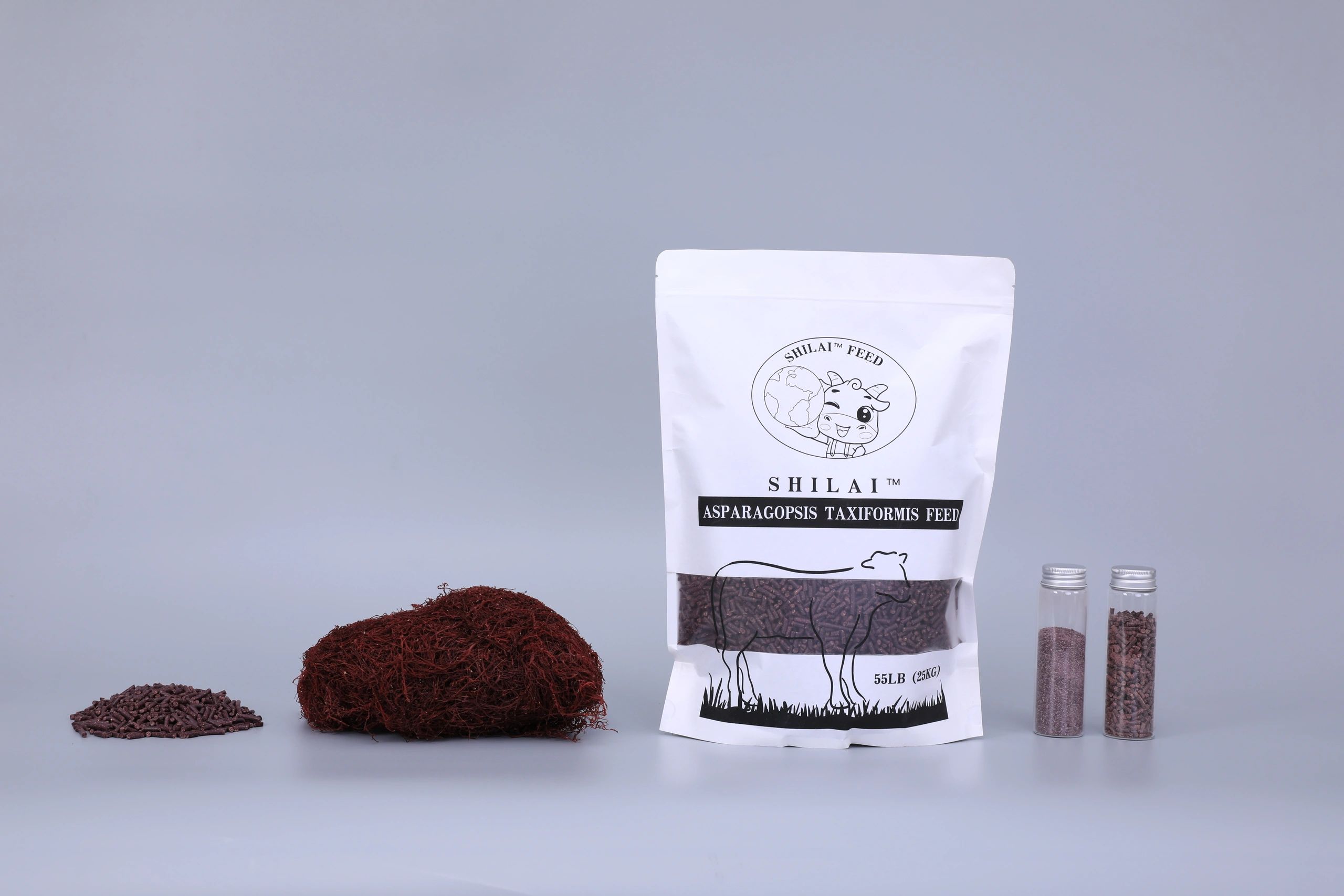Global food production systems generate a considerable amount of greenhouse gases, chiefly from livestock rearing.
Methane is an especially potent greenhouse gas with a greater climate forcing effect than CO2, raising major concerns.
Evidence suggests Asparagopsis taxiformis, a red marine plant, could offer a promising route to curtail methane from animal agriculture.
A unique chemical in the seaweed interferes with rumen methanogens, resulting in measurable decreases in methane production.
Integrating Asparagopsis taxiformis into livestock feed has yielded encouraging outcomes in early trials, pointing to a practical route for cutting agricultural greenhouse gases.
- Asparagopsis taxiformis additionally supplies complementary benefits that enhance its appeal for agriculture.
- Enhanced nutritional value for livestock
- Chance to build circular supply chains around seaweed production
Even though extensive research and validation are ongoing, Asparagopsis taxiformis appears poised to be a meaningful mitigation option.
Unleashing the Benefits of Asparagopsis taxiformis Powder for Feed Applications
Asparagopsis taxiformis prepared as powder or extract could enable broad deployment as a functional feed additive.
Asparagopsis’s nutrient and functional compound mix can support improved feed efficiency and animal output.
Adding A. taxiformis powder to formulations has produced methane reductions in experiments and may enrich feeds with vital micronutrients.
Further rigorous research is crucial to optimize dosage, processing, and long-term safety to unlock full commercial potential.
Asparagopsis taxiformis as a Catalyst for Sustainable Animal Farming
This red seaweed is gaining attention as an approach to address environmental problems tied to conventional animal agriculture.
Integrating the algae into feeds may allow producers to substantially reduce on-farm methane emissions and environmental impacts.
Research findings indicate the seaweed may also enhance productivity and health markers in livestock alongside emission cuts.
Additional long-range research and deployment studies are needed, but current trial outcomes are optimistic.
Asparagopsis as a Dietary Strategy to Lower Methane
Asparagopsis is recognized as a strong candidate for reducing the methane burden from ruminant livestock.
Asparagopsis contains active molecules that alter rumen microbial activity and limit methane generation.
- Research trials have demonstrated that Asparagopsis can reduce methane by substantial percentages in controlled studies.
- Incorporating Asparagopsis into rations is an environmentally sound method for methane abatement.
- Farming operations are starting pilot projects to assess the adoption of Asparagopsis in feeds.
Asparagopsis: A Transformative Feed Innovation for Livestock Production
From ocean science to farm practice, Asparagopsis taxiformis is an emerging contender for sustainable methane mitigation.
- Feeding trials with Asparagopsis demonstrated substantial methane declines, supporting its environmental promise.
- This breakthrough could help reconcile food production with sustainability by lowering emissions while supporting nutrition needs.

Within the portfolio of climate mitigation approaches, Asparagopsis is notable for its novel potential to lower methane from animals.
Streamlining Asparagopsis taxiformis Feed Applications to Maximize Methane Benefits
Efforts aim to refine processing techniques and dosing protocols to ensure A. taxiformis performs reliably as a feed additive.
The Science Behind Asparagopsis taxiformis's Methane-Lowering Effects

The methane-lowering phenomenon is linked to the seaweed’s interaction with methanogenic archaea in the rumen, reducing their activity.
The compound bromoform within the seaweed is a principal inhibitory agent against methanogenesis, and researchers are studying its dynamics and safety.
Designing Feed Blends with Asparagopsis to Enhance Farm Sustainability
The alga’s nutrient composition plus its methane-mitigating constituents support its potential as a feed ingredient.
Including the seaweed in formulations can supply proteins and trace elements, support digestive health, and contribute antimicrobial effects.
Asparagopsis taxiformis: A Natural Solution for a Greener Food System
The species is gaining momentum as a seaweed solution that can materially reduce agricultural greenhouse gas emissions.
- Furthermore, Asparagopsis taxiformis is nutrient rich and can add valuable components to animal feeds.
- Experts across sectors are mobilizing to research Asparagopsis applications in both marine and land-based food systems.
Scaling Asparagopsis use in feeds may translate into significant declines in agriculture-related greenhouse gas emissions.
Asparagopsis Feed Inclusion: Positive Effects on Health and Productivity
Asparagopsis is increasingly recognized as a promising feed supplement that may improve both animal health and productivity.
Research indicates potential gains in digestive efficiency and feed conversion ratio from Asparagopsis inclusion, supporting growth outcomes.
The seaweed’s bioactives may provide antioxidant and immune-support effects that support animal robustness and disease resistance.

The momentum behind sustainable livestock practices enhances the appeal of Asparagopsis as studies and commercialization advance.
A Sustainable Trajectory: Methane-Cut Feeds Based on Asparagopsis
As the agricultural sector seeks pathways to emissions reduction, Asparagopsis stands out as an implementable methane mitigation measure.
- The leading hypothesis is that the seaweed’s constituents suppress methanogenic microbes and disrupt methane synthesis in the rumen.
- Research trials have repeatedly demonstrated meaningful methane reductions linked to Asparagopsis dietary inclusion.
This innovative approach not only offers a greener feed option but also the potential to transform food production toward climate-resilient outcomes.